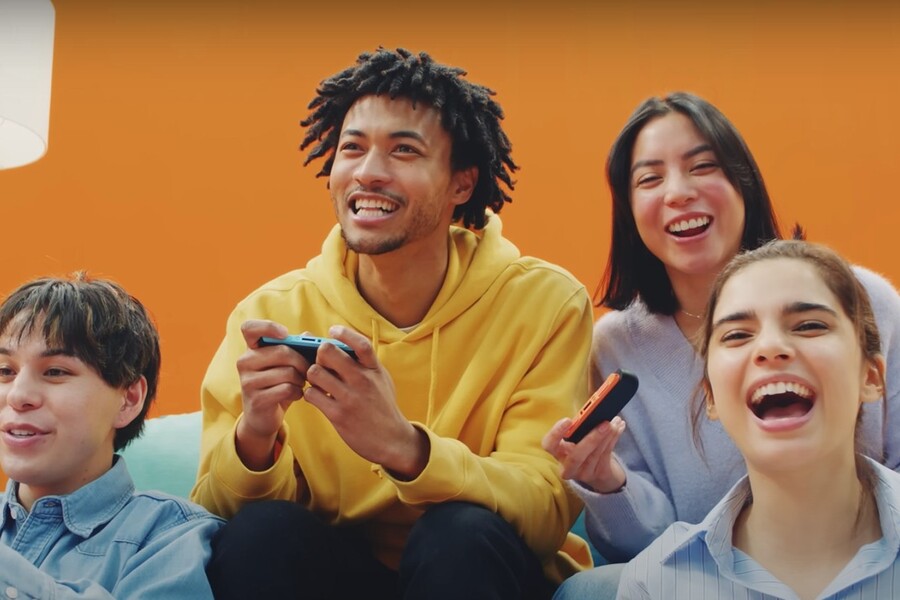Nintendo has made a bold move ahead of the anticipated launch of the Nintendo Switch 2—updating its user agreement and privacy policy to include stricter enforcement against device modification and a new surveillance feature for in-game communication. These changes signal a more aggressive stance by the gaming giant in its long-running war against piracy, modding, and what it deems as unauthorized use.
Nintendo’s latest user agreement includes language that may allow the company to permanently disable consoles found to be in violation of its terms. This means users who attempt to modify, hack, or use unauthorized software on the Nintendo Switch 2 could find their entire system bricked—rendered completely unusable.
For users in the United States, the clause reads:
“You acknowledge that if you fail to comply with the foregoing restrictions, Nintendo may render the Nintendo Account Services and/or the applicable Nintendo device permanently unusable in whole or in part.”
In the United Kingdom and Europe, the wording is slightly softer but no less significant:
“Such unauthorised use of a Digital Product may result in the Digital Product becoming unusable.”
While Nintendo hasn’t explicitly defined what “unusable” entails, the phrasing strongly implies a measure beyond typical account bans. Analysts suggest this could mean rendering critical system functions or the device itself inoperative, a strategy aimed at discouraging even the most tech-savvy modders.
This update is part of Nintendo’s broader campaign to stamp out piracy, third-party mods, and emulation practices. The company has historically taken legal action against ROM sites, emulator creators, and fan projects that mimic its intellectual properties.
One recent example includes Nintendo’s aggressive pursuit of legal claims against the developers of Palworld, a game criticized for featuring designs that bear a resemblance to Pokémon characters. Legal pressure has led to game revisions and public criticism over what many consider Nintendo’s overly litigious protection of its IP.
Yet, from Nintendo’s perspective, these actions are about safeguarding the integrity of its ecosystem. The updated user agreement seems designed not only to curb piracy but also to prevent tampering with the hardware’s firmware or circumventing digital rights management (DRM) protections.
In parallel with the stricter device policy, Nintendo’s revised privacy policy introduces another controversial element: chat monitoring. As the Switch 2 prepares to launch with a built-in microphone and optional camera accessory, a new Game Chat feature enables video and voice communication during gameplay.
According to the new policy:
“Feature-specific communication content such as video and voice chats may be recorded and stored for up to 24 hours on the User Devices of all users participating in a chat.”
The company states that these recordings are intended to empower users to report inappropriate interactions and to ensure compliance with its Code of Conduct. However, privacy advocates argue that the ability to record and potentially access private conversations, even for a short duration, raises red flags, especially since the Switch is widely marketed as a child-friendly console.
Not unless you’re willing to risk having your console permanently disabled. The updated agreement makes it clear that unauthorized use may lead to total device shutdown, not just service suspension.
Not exactly. The recordings are temporary (24 hours), device-based, and only saved during active use of Game Chat. However, they can be accessed by Nintendo for moderation purposes, particularly in response to player reports.
Critics argue that Nintendo’s hardline policies harm game preservation efforts, especially for retro games not readily available on official platforms. Enthusiasts say modding and emulation often serve to archive and celebrate video game history. However, Nintendo remains firm in its belief that it must control all access and usage to protect its IP and player experience.
The Nintendo Switch 2 is set to be more than just a next-gen console—it’s shaping up to be a tightly controlled environment where breaking the rules can have severe consequences. From potential console bricking to real-time chat monitoring, Nintendo is reinforcing its authority over how its devices and services are used.
As fans await the official launch and preorders next week, one thing is clear: modding, piracy, or even unapproved tinkering with the system could now carry unprecedented risks.


